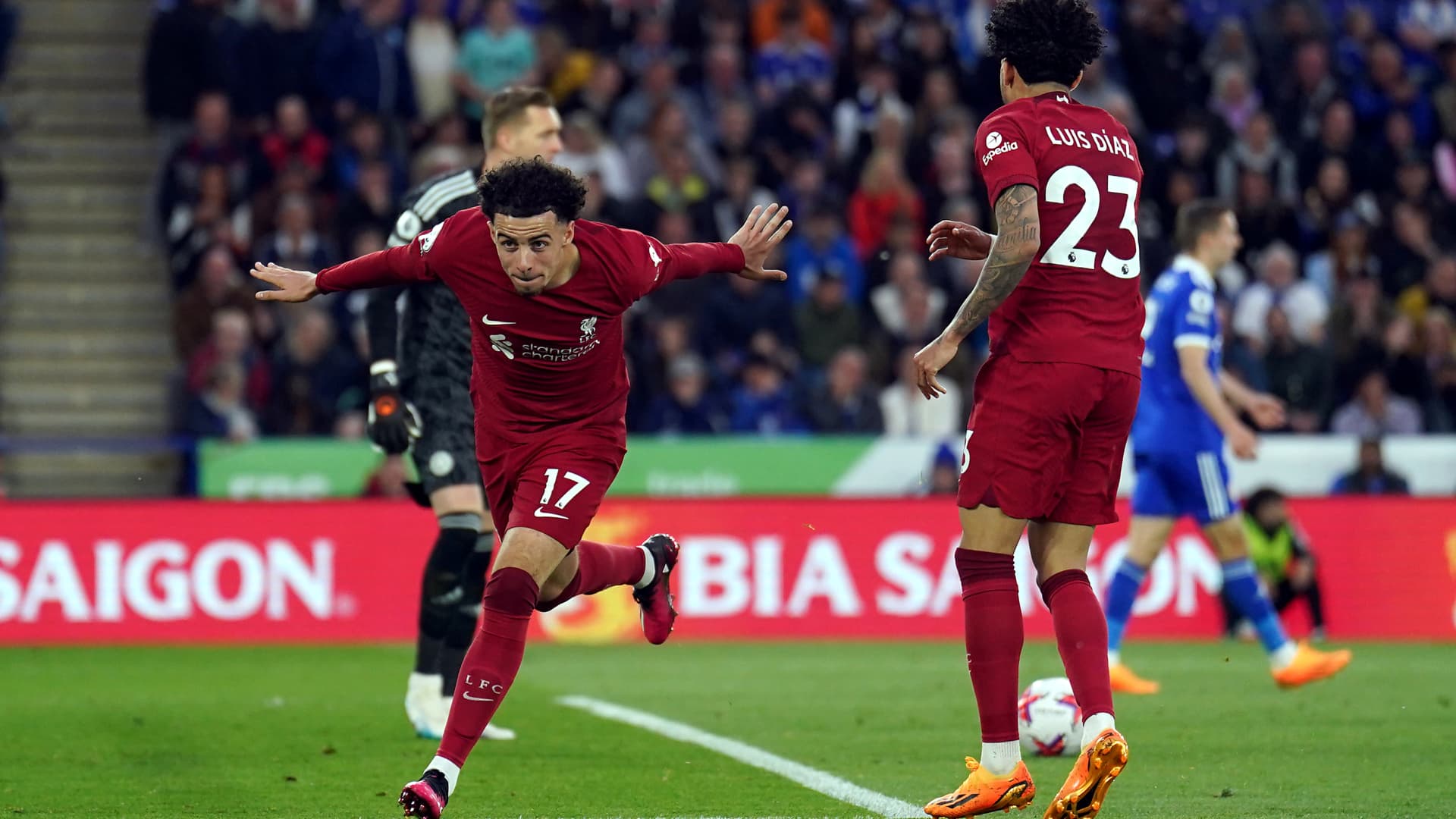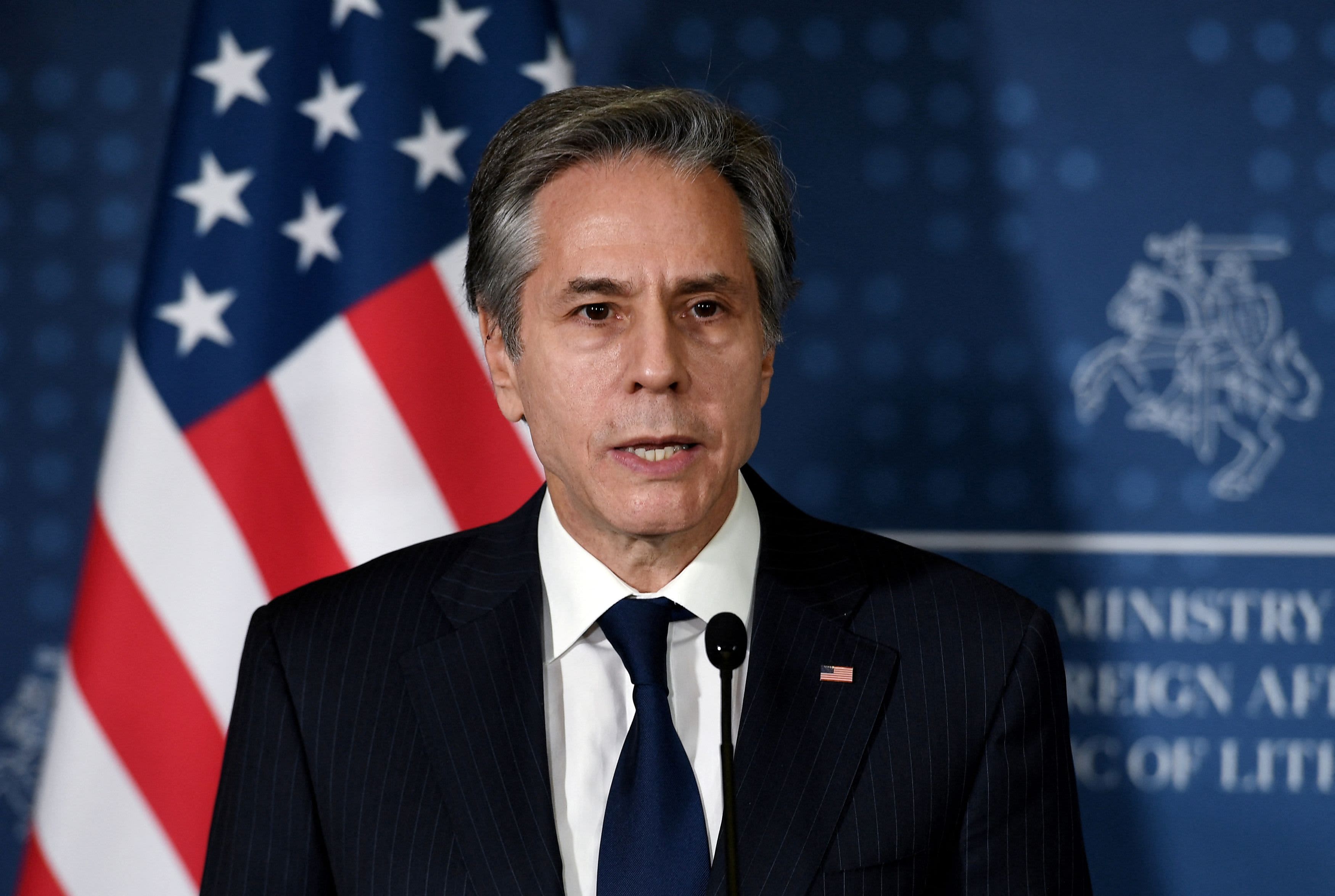For U.S. investors seeking an edge in European soccer, the cheaper the better
Private equity firms are looking for an edge when investing in European soccer clubs. Some are looking to a multi-club model.

Liverpool's Curtis Jones celebrates scoring their side's second goal of the game during the Premier League match at the King Power Stadium, Leicester. Picture date: Monday May 15, 2023.
Tim Goode | Pa Images | Getty Images
For U.S. investors looking to score an investment in a European soccer club, some of the focus is shifting toward the clubs with lower valuations and typically not in the marquee tier of the sport overseas.
Some investors, particularly in the U.S., are shifting toward a so-called multi-club model, or investing in smaller clubs with lower valuations, as they try to take a piece of the international sports market at smaller deal valuations.
This comes as deep-pocketed investors — from top U.S. private equity and venture capital firms to global rivals like sovereign wealth funds — have intensified competition.
"In terms of private equity and high net worth individuals, soccer is more of a global sport than almost any U.S. sport," said Charles Baker, co-chair of law firm Sidley's entertainment, sports and media group. "There are huge populations that can be accessed — in both the regions they play in and the world."
That global nature of soccer fans — and the growing popularity in the U.S. — often translates into higher revenue opportunities from broadcast media rights deals to merchandising.
The owners behind clubs including Manchester United, Chelsea FC and Newcastle have seen revenue multiples step up, and in many cases valuations have doubled, PitchBook noted in a report that concluded most clubs would sell at a premium.
Deal valuations across the top five European soccer leagues have exploded from more than $70 million in 2018 to roughly $5.2 billion in 2022, according PitchBook. Meanwhile, more than one-third of the clubs in the so-called "Big Five" leagues in Europe are backed by U.S. investors, including private equity and venture capital firms.
The spike in 2022 came from a consortium led by U.S. investor Todd Boehly and private equity firm Clearlake Capital acquiring the English Premier League's Chelsea for more than $5 billion, as well as RedBird Capital Partners' takeover of Italy's AC Milan from Elliott Management for nearly $1.3 billion.
"These recent transactions have set a precedent in terms of club valuation but also prompted many owners to consider selling to [private equity]," according to an analyst report from PitchBook.
Some firms, like Sixth Street Partners, have found different outlets into taking a stake in European soccer, particularly in Spain's LaLiga. The firm acquired a stake in the Spanish broadcast rights of FC Barcelona, the former longtime home of superstar Lionel Messi, and also paid about $380 million for a stake in Real Madrid's stadium operations.
The shift is happening as soccer clubs have been looking for fresh capital following the distress stemming from the earlier days of the Covid pandemic. Revenue decreased as coronavirus restrictions kept fans out of the stands and costs rose, which led to an opening for more U.S. investors to take a stake in the increasingly popular global sport.
Last month, U.S. investor Fenway Sports Group sold a minority stake in Liverpool FC to Dynasty Equity, in a move to help it pay down debt stemming from the pandemic and costs from upgrading the team's home field and buying high-profile players.
Various English Premier League clubs have been reportedly open to discussions with buyers, including recently Sheffield United and Manchester United.
Dwight McNeil (L) and Demarai Gray of Everton during the Premier League match between Manchester United and Everton FC at Old Trafford on April 08, 2023 in Manchester, England. The club's shirts are sponsored by online casino Stake.com.
Tony Mcardle - Everton Fc | Everton Fc | Getty Images
Multi-club moves
This has led some U.S. investors to find creative ways into the European sports market.
Lower tier leagues like England's Championship League and League One are attractive plays at smaller valuations, and each have teams open to buyers and investors, noted Neil Barlow, an attorney at Clifford Chance.
"One thing to be mindful of is relegation — it's taken PE firms and other financial buyers a bit of time to get more comfortable with that. At the same time, they understand the upside of promotion," said Baker. In soccer, teams face relegation to lower leagues if they have a disappointing season.
Irwin Raij, also co-chair of law firm Sidley's entertainment, sports and media group, said the firm has seen plenty of investors with business plans to take lower tier teams to a higher level through investment. "It sounds easier than it is to implement. We've seen interest from a broad variety of investors in that space," Raij said.
There's also rising interest in other teams across Europe, letting U.S. middle-market investors snap up multiple teams and move toward a so-called "multi-club" model.
Valuations across these teams are typically in line with each other. It also allows for a model in which players can be transferred throughout the various clubs owned by the same investor, building up their talent and potentially being sold to a higher league — similar to the minor leagues in the U.S.
Through this method, investors "can find synergies between comparable clubs," either on the same continent or across the globe, while also leveraging governance, technology and data sharing between the clubs, Barlow said.
"It's a strategy a lot of other U.S.-based investors are circling around deploying," Barlow said.
Ilkay Gundogan (C) of Manchester City lifts the UEFA Champions League trophy after the team's victory in the UEFA Champions League 2022/23 final match against Inter at Ataturk Olympic Stadium.
Anadolu Agency | Anadolu Agency | Getty Images
City Football Club is a multi-club outfit that includes Abu Dhabi United Group as its majority investor. It's also backed by U.S. private equity firm Silver Lake, and Chinese investors hold a small stake.
City Football Club owns the Premier League's powerhouse and recent champion Manchester City, as well as Major League Soccer's New York City Football Club and Australia's Melbourne City.
But as larger private equity firms chase the top teams, middle-market firms are looking to raise funds to chase the multi-club strategy, Barlow noted.
One U.S. firm that has been using this strategy is 777 Partners.
The Florida-based company recently agreed to buy a majority stake in the Premier League's Everton for a reported $685 million, after building its portfolio with other European soccer clubs in the past few years.
In 2018, the firm took a stake in the Spain's Sevilla FC, and followed suit with investments in clubs in various countries from Genoa C.F.C. in Italy and Red Star FC in France to clubs in Brazil and Australia.
Correction: This story has been updated to correct that RedBird Capital Partners acquired AC Milan. An earlier version mischaracterized the transaction.

 ValVades
ValVades 
































